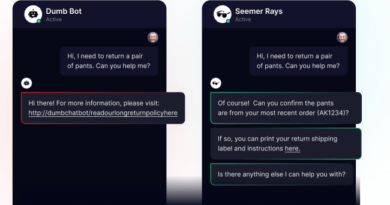Technical interview platform Karat snaps up Triplebyte to add adaptive quizzes for engineers
The technology industry continues to rack up an ever-longer list of layoffs — which now stand at nearly 139,000 according to Layoffs.fyi — but taking the wider job market, the overall pace of recruiting engineers and other technical talent has not let up. Now, one of the bigger players in the area of technical recruitment is making an acquisition in a consolidation play to better tackle the opportunity. Karat, a technical interview platform used in the recruiting process that was last valued (in 2021) at over $1 billion, is acquiring Triplebyte, a smaller, but well-connected, player in the same space that built and ran adaptable technical skills quizzes for engineers, and then helped get them on the radar for jobs that matched their skills.
Financial terms of the deal are not being disclosed, but from what we understand, Triplebyte appears to have gotten to the end of its funding runway, a story that is not uncommon in the current market. The deal includes Triplebyte’s core assessment products and content library but its “Magnet” talent network will be wound down at the end of this month. (Any underlying data that gets used for analytics will get anonymized, Karat said.)
Triplebyte — founded by Harj Taggar, Guillaume Luccisano and Ammon Bartram (who is the current CEO) — raised just under $50 million. It never disclosed its valuation, but in 2019, when the company raised $35 million, Taggar (who was still with the company and CEO) told me it was “hundred million multiples towards being a unicorn.” PitchBook puts it at a more modest-sounding $135 million.
Karat itself is backed by the likes of Tiger Global, Norwest Venture Partners, 8VC, Exor, Base Partners and Sempervirens Fund. Mohit Bhende, the founder and CEO of Karat, said that it did not need to raise extra funding for this acquisition — nor, in this current market, does it have plans to raise more.
Karat and Triplebyte may both be addressing the world of technical recruitment, but they have been doing it from different directions.
Karat has built what it describes as an “Interviewing Cloud” — a suite of tools and services for recruiters to use to run technical interviews. It says that “hundreds” of interviews are run daily on its platform, with customers including big global brands like Walmart, Roblox and Indeed.
Triplebyte, meanwhile, has built a platform for engineers to take adaptive tests, with the results being used to get on the radar of recruiters based on their respective skills. It is a very tech-first startup: the “adaptive” part of the platform is a reference to Triplebyte having been built around machine learning that tailors the tests as they are taken to highlight and drill into specific skills. There are tens of thousands of engineers on the platform today, the company says.
The idea will be to bring those two businesses closer together in an end-to-end strategy: recruiters will have a set of tools they can use to help screen candidates as part of the Karat platform.
“Our goal at Triplebyte was to make real-world engineering skills the most important requirement for getting a shot at a job in tech,” said Bartram in a statement. “By combining our adaptive assessment technology with the Interviewing Cloud, Karat is creating a unique solution that eliminates pedigree bias, delights candidates and delivers an unparalleled amount of hiring signal.”
Bhende also noted that longer term, there might be ways of using the technology that Triplebyte has built and is building to bring more automation into the currently very human-centric process that Karat has built. Although plans there are still very early, that could include adaptive prompts and help for recruiters in terms of the kinds of questions they could ask and have answered in interviews.
There are still a lot of areas to tackle to turn digital platforms into more suitable partners for improving inclusion in the job market.
Bhende noted that one of the strongest points of the Triplebyte platform was the potential for using it to help remove bias in the wider recruitment process, since its automated approach gives it the ability to take on a large volume of applications — and in theory anyone who wants to apply — meaning the initial default for any job can be no screening at all. (This is still of course a work in progress, since bias and accessibility can come in many forms.) Triplebyte for its part has made its own efforts to promotive inclusivity in its platform and among other startups the computer science community.
All of this talk of more opportunities for everyone is a little ironic considering Triplebyte’s own beginnings, with a lot of advantages that other startups lack when breaking into the world of tech, acquiring customers and raising money.
Before co-founding the startup, Taggar was (and still is) a longtime partner at Y Combinator, and before all that he’d co-founded and sold a company with Patrick Collison (who himself went on to found Stripe). Triplebyte was incubated at the famous accelerator and counted a number of YC startups among its earliest customers and the engineers at those startups among the 300,000 that took tests to build its machine learning algorithms. It also became a part of YC’s later-stage Continuity investment portfolio, a business that YC announced this month it would be winding down. Other big-name investors included Initialized Capital (co-founded by Garry Tan, who is now YC’s CEO), Founders Fund, Caffeinated Capital and dozens of high-profile angels.
Of course, all of that will get you far, but not always to the finish line. And in the current market, that end point might look very different than it did a few years ago.
The market today definitely seems like it’s a harder one for jobs in the technology industry, but Bhende says that demand has remained high among Karat’s customers because the need for tech talent has spilled further out into other industries.
“If Karat is a barometer of the technology industry, our business with companies undergoing digital transformation has really boomed, and India has boomed,” he said. That means that even with the layoffs and hiring freezes, which have had their own impact, “the puck of hiring has shifted. The shortage of engineers is still very much a thing. There are not enough of them given the demand.
On the India booming note, he said that Karat is planning to do a lot more in there, with a lot of demand both to recruit engineers and to source technical talent from India to fill opportunities around the world.
“The distribution of engineers looks very different, and it will look different again in two years,” he added.
Updated to make clear that Karat is an interview platform used in the process of hiring.




